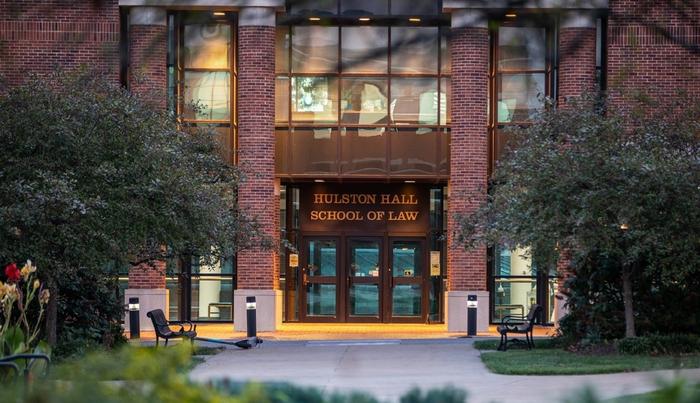When it opened in the early ‘90s, the Family Violence Clinic at the University of Missouri School of Law was among the first of its kind: a safehaven for indigent victims of violence and a place for law students to gain the practical experience essential to a successful career as an attorney. Now, after closing its doors in 2020, the legal clinic is poised for a comeback with support from new funding passed by the Missouri legislature.

Credit: Photo by Abbie Lankitus
When it opened in the early ‘90s, the Family Violence Clinic at the University of Missouri School of Law was among the first of its kind: a safehaven for indigent victims of violence and a place for law students to gain the practical experience essential to a successful career as an attorney. Now, after closing its doors in 2020, the legal clinic is poised for a comeback with support from new funding passed by the Missouri legislature.
“I am so excited about this clinic,” said Paul Litton, dean of the MU School of Law. “I love the fact that we can get students valuable, practical experience while helping vulnerable people in our communities. This is an invaluable experience for law students who not only receive the mentorship and support of their clinical professor, but also get to work on real-life cases and create meaningful change in clients’ lives.”
A search will begin immediately for a clinical professor to direct the clinic — a bar-certified attorney who also teaches — with the goal of filling the position and opening the clinic by January 2024.
Managed judiciously for more than 20 years by now professor emeritus Mary Beck, the legal clinic served as fertile ground for burgeoning young attorneys. During her tenure, Beck instructed law students to treat the clinic as a law firm where they were complete client intake, draft briefs and even appear in court among other duties that spanned the legal gamut.
“There are many statutes on the books now that were originally bills drafted by Professor Beck and her students based on their research in her course,” Litton said. “She required her students to write papers in support of those policy recommendations in addition to going to Jefferson City to speak to the legislature about them. The purpose of those statutes is to improve the foster care system and the lives of victims of domestic violence.”
Since its inception in 1993, the clinic thrived under the tutelage of Monique Prince, who worked as an executive legal secretary, managing the emergency hotline and serving as an advocate for victims of abuse. Over the years, she saw the clinic expand its services to support Missourians who depended on more extensive legal care. This development provided more avenues for student attorneys to broaden their apprenticeship.
“When I first started working there, we mostly did cases for women and children in domestic violence situations,” Prince said. “And then Mary started supervising guardianship work where students helped men and women who were terminally ill set up guardianship arrangements for their children, so that if they were to get really sick, and weren’t able to take care of their children, the standby guardian could step in and take care of them until they got well or unfortunately, if they did pass away, then there would already be a guardian in place.”
When it reopens, Litton expects the clinic will continue to offer a broad range of services, including protecting victims of violence. He also anticipates offering additional services, which will depend on the expertise of the attorney hired as the clinic’s new director.
Over the span of the clinic’s original 27 years, students and alumni alike described their experience as formative work that made a mark early on in their legal educations and, ultimately, careers. In 2016, Mary Beck was awarded a William T. Kemper Fellowship for Teaching Excellence, the university’s most prestigious teaching award and one for which faculty must be nominated.
Among the support for Beck’s nomination for the award was a letter from Michele Koehly, who said her experience at the clinic shaped the trajectory of her law career.
“Today when I talk to law students asking for advice, I always inquire about any clinic programs offered at their school,” Koehly said. “My best advice to every law student is to do a clinic. Professor Beck and her Family Violence Clinic taught me how to practice law and the importance of actually committing myself not only to the case but also to the client. I am a firm believer that ethics cannot be ‘taught’ in the traditional sense, they have to be taught by example, which there’s no better example of that than Professor Beck.”




